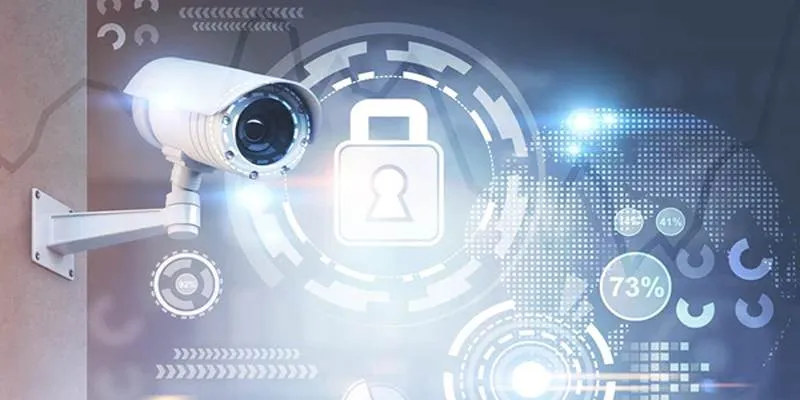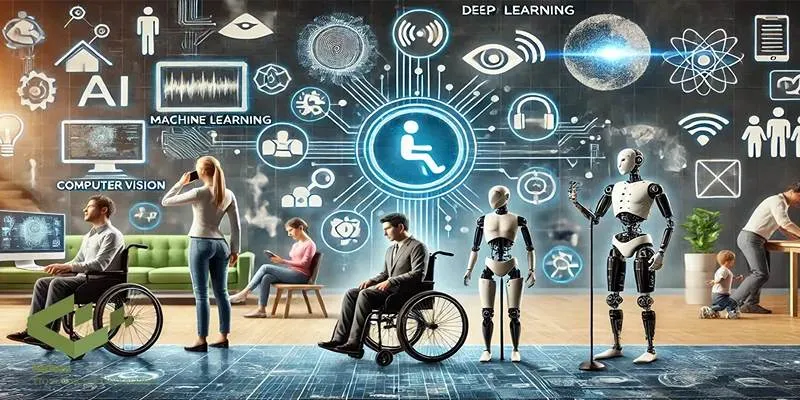As technology rapidly advances, home protection methods are evolving too. Among the most notable developments is the emergence of AI-powered home security systems. These systems are smarter, faster, and more adaptable than traditional methods, providing families with enhanced safety and peace of mind.
Artificial Intelligence (AI) has revolutionized home security by making it more intelligent and personalized. Instead of merely sounding alarms or recording footage, these systems are designed to think, learn, and respond—much like a human, but with greater speed and accuracy.
What Is AI-Powered Home Security?
AI-powered home security leverages artificial intelligence to monitor, detect, and respond to potential threats in and around a property. It surpasses standard cameras and sensors by integrating machine learning, facial recognition, real-time data processing, and behavior analysis.
These systems don’t rely solely on manual monitoring. Instead, they employ algorithms to understand patterns, identify unusual activities, and notify homeowners of potential risks—automatically and in real time.
How AI Enhances Traditional Home Security
While traditional systems depend on motion sensors and basic alerts, AI elevates home security to a higher level. The primary difference lies in the intelligence behind the system.
Smarter Detection and Fewer False Alarms
One major advantage of AI is its ability to distinguish between real threats and harmless movements. Traditional systems might trigger alerts due to a cat passing by or wind-blown branches. AI, however, can differentiate between a pet and a person or between a falling leaf and an intruder.
Deep learning algorithms enable these systems to analyze video feeds and sensor data more accurately than older technologies.
Key Features of AI-Powered Home Security

AI security systems offer a variety of features that enhance family protection in smarter and more efficient ways:
- Facial Recognition : Identifies familiar faces and alerts users when a stranger is detected.
- Smart Motion Detection : Differentiates between objects, animals, and people.
- Real-Time Alerts : Sends notifications instantly to the user’s smartphone or other connected devices.
- Automatic Learning : Adapts to the household’s routine over time, learning what’s normal and what’s not.
- Remote Access : Allows homeowners to view camera feeds and control devices from anywhere using mobile apps.
These features combine to provide a comprehensive and intelligent security experience tailored to the household’s specific needs.
Benefits for Families
Families increasingly favor AI-based security for one main reason: enhanced safety with minimal effort. These systems not only improve physical protection but also offer emotional comfort, assuring that loved ones are safeguarded—even when no one is home.
Why Families Choose AI for Security
- 24/7 Smart Monitoring : AI systems operate continuously without needing rest or human oversight.
- Customizable Alerts : Users can select which activities trigger alerts, minimizing unnecessary notifications.
- Emergency Response Integration : Some systems can automatically summon help if danger is detected.
- Child and Elder Monitoring : Cameras can notify users when children arrive home safely or if elderly members exhibit unusual movement patterns.
These features ensure both proactive and reactive protection, making these systems ideal for households of all sizes.
Real-World Uses of AI in Home Security
AI-powered security is not just theoretical—it’s already safeguarding homes globally in practical ways.
Monitoring Entrances and Deliveries
AI-powered doorbell cameras can recognize familiar faces, track packages, and even deter package theft—an increasing concern in urban areas.
Nighttime Protection and Smart Lighting
AI-connected lighting systems can automatically illuminate areas when motion is detected, deterring intruders. Combined with night-vision cameras, these systems maintain security even in complete darkness.
Detecting Suspicious Behavior
AI systems can monitor behavior over time and flag anomalies. For instance, if someone repeatedly circles the house at odd hours, the system can alert the owner and document the incident.
Factors to Consider Before Installing
While AI home security offers numerous advantages, families should consider several factors before installation:
- Initial Cost : Although prices have decreased, AI systems can still be costlier than basic setups.
- Internet Dependence : These systems heavily rely on strong Wi-Fi connections for optimal performance.
- Privacy Concerns : As with any data-collecting device, it’s crucial to understand how footage is stored and who has access.
- Compatibility : Some AI systems may not integrate well with older smart home devices or certain voice assistants.
Selecting the right system involves evaluating these factors based on family size, lifestyle, and budget.
Leading AI Security Brands and Tools

Several companies are leading the way in providing accessible and efficient AI-powered home security systems:
- Google Nest Cam : Offers smart alerts and facial recognition, integrated with Google Assistant.
- Ring (by Amazon) : Renowned for video doorbells and real-time alerts, compatible with Alexa.
- SimpliSafe with AI Enhancements : Provides comprehensive systems that can automatically contact emergency services.
- Arlo : Features HD cameras with intelligent object recognition and mobile app controls.
Each system has its strengths, with many families choosing based on brand ecosystem (Google or Amazon), device range, or affordability.
Conclusion
AI-powered home security signifies the next step in smart living. These systems offer more than surveillance; they act as intelligent guardians that understand, learn, and respond to each household’s unique environment. With features like smart alerts, facial recognition, and 24/7 monitoring, families can rest assured knowing their home is secure. As AI technology becomes more accessible and affordable, it’s poised to become a standard component of home design and planning. For families looking to upgrade their safety, embracing AI home security is not just a wise decision—it’s a forward-thinking one.
 zfn9
zfn9























